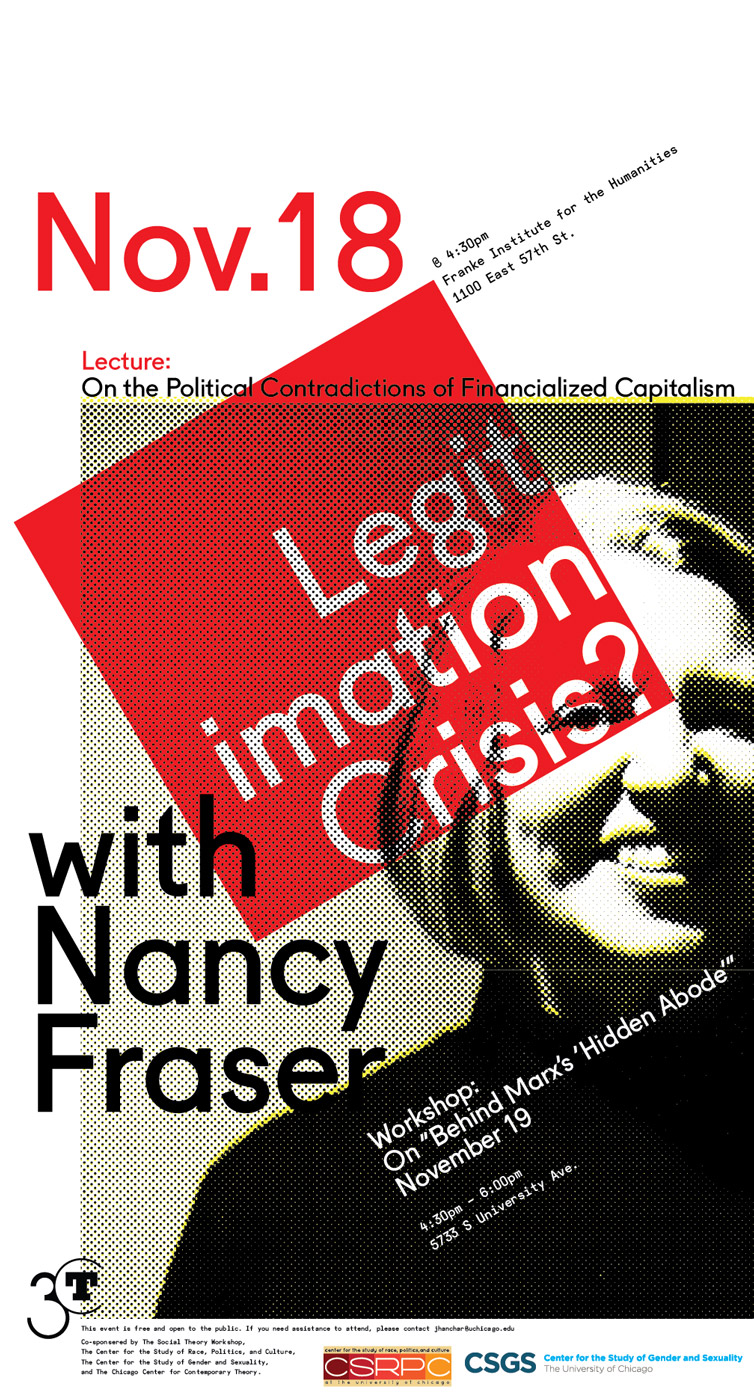Categories
Nancy FraserLegitimation Crisis?: On the Political Contradictions of Financialized Capitalism
Tuesday, November 18, 2014, 4:30pmNumerous phenomena suggest a serious crisis of democracy: for example, declining electoral turnout; the rise of extremist parties; widespread disaffection with the European Union; steep narrowing of real policy differences between competing parties as nearly all rush to placate “the markets”; increased capture of public powers by private interests; growing geopolitical irrationality, reflecting the decline of US hegemony. No wonder, then, that diagnoses of political crisis proliferate: we hear now of “post-democracy,” “de-democratization,” “the crises of democratic capitalism,” and “façade democracy.”
Fraser suggests that these phenomena are best understood as expressions, under historically specific contemporary conditions, of a general tendency to political crisis that is intrinsic to capitalist societies. She elaborates this thesis in three steps. First, a general account of “the political contradiction of capitalism,” without reference to particular historical forms. Then, Frasier reconstructs Jürgen Habermas’s 1973 book, Legitimation Crisis, as an account of the form this political contradiction assumed in one specific phase of capitalist society, namely state-managed capitalism. Finally, she argues that democracy’s present travails express capitalism’s political contradiction in its current phase of financialized, globalizing capitalism.
This event is co-sponsored by 3CT, the Social Theory Workshop, the Center for the Study of Gender and Sexuality, and the Center for the Study of Race, Politics, and Culture.

